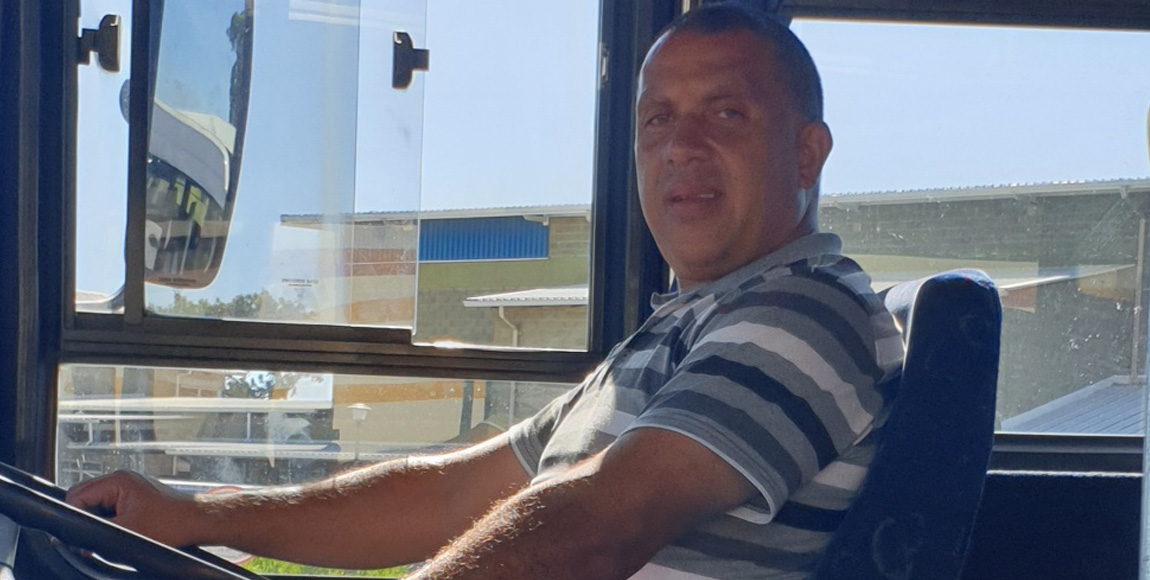Celebrating the school bus driver

FOCUS regularly reports on the current state of the commuter-bus industry, as well as bus rapid transit (BRT) systems and the coach industry. However, one aspect of bus transport that pops up less regularly is that of scholar transport.
With the 2019 school year having kicked off only a couple of weeks ago, it’s a great time to explore the important role bus drivers play in ensuring the country’s future leaders receive the education they deserve. Just getting to that point is, however, fraught with difficulty.
According to the Southern African Bus Operators Association (Saboa), scholar transport operators contracted to the Department of Education face numerous challenges.
These include unsustainable remuneration rates of tenders; non-provision for any escalation to compensate the operator for inflationary costs; the late payment of their monthly claims; and the unpaid discrepancy between the 200-days school year and their 12-month business year.
“However, these bus drivers are quick to state that they take pride in the essential role they play in the education process of future generations. Many of the struggles of running profitable businesses are overshadowed by the fulfilment of playing driver and custodian to this unique category of passengers,” comments Eric Cornelius, executive manager of Saboa.
Challenging but rewarding
“Few understand that bus drivers have a major responsibility and provide special care, particularly when there is no driver assistant or monitor on board. This adult supervision is required of the driver, while at the same time they need to keep eyes on the road to ensure safe passage,” comments Nazeem Dollie, partner in the Overland Tours family business.
Throughout Dollie’s 20-year career as a scholar bus driver he has had the privilege of seeing several generations of learners cross the threshold of his bus.
“Every year I observe each of my passengers navigating their primary- and then high-school journey, which makes me conscious that I am transporting the future generation of the country. The idea that some of them go on to play an important role in society makes me feel like I was one of their educators,” reflects Dollie.
Dollie explains that transporting 50 to 60 children, many of whom are undergoing the volatile stage of adolescence, comes with its fair share of obstacles. He says that the most challenging passengers are the seven-year old Grade R and 17-year-old Grade 12 learners.
The younger passengers are often bewildered by travelling without a family member and tend to cry their way through the first days or weeks of the school year. On the other end, Grade 12s can be bullies making the daily commute for their younger counterparts challenging.
Should any misdemeanours or vandalism take place (especially in the case of a violent altercation or repeated offences), perpetrators need to be reported to the school and parents. An internal hearing takes place where the school governing body adjudicates the matter and, in extreme cases, the child is expelled from the transport or the matter is handed over to the police.
Running a company to a school schedule
Elias Chongo, owner of Chongo Express in North West, owns three scholar-transport buses servicing the Dr Kenneth Kaunda region. He often faces the difficulty of finding reliable drivers who will honour their daily commitment. Despite the convenient schedule of working only early morning and mid-afternoon, some drivers still fail to report to duty when required.
Another challenge is the difficulty of securing contracts from the Department of Education, which, he says, tend to be awarded to larger operators.
Then there is the down period of school holidays when his company faces a lot of red tape to secure temporary permits to transport general commuters in a private capacity. Should permits be refused, Chongo finds himself with idle buses and no revenue during school holidays.
Just these few aspects of scholar bus operations highlighted by Dollie and Chongo shed some light on this crucial, yet underrated, element of the educational ecosystem.
Dollie testifies that there are, nevertheless, some parents who express their gratitude for the role he plays in the lives of their children and every so often he receives a gift from them in recognition of his service.
“The African proverb states that, ‘It takes a village to raise a child’, and school bus drivers are part of this village,” affirms Cornelius.
Published by
Focus on Transport
focusmagsa




